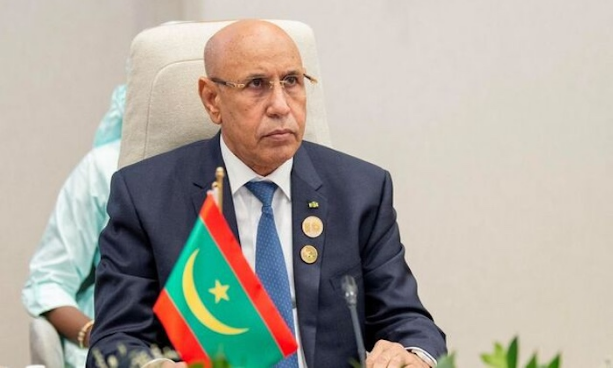
President Mohamed Ould Ghazouani Re-Elected in Mauritania Amidst Controversy and Fraud Allegations
Fiona Nanna, ForeMedia News
5 minutes read. Updated 11:00AM GMT Tues, July 2, 2024
President Mohamed Ould Ghazouani of Mauritania has secured re-election for a second term after winning the national vote held on Saturday. The results, confirmed by the country’s independent electoral commission (CENI) on Monday, show Ghazouani emerging victorious in the first round with a commanding 56.1% of the votes.
However, the election results have been met with contention. Ghazouani’s primary opponent, anti-slavery activist Biram Dah Abeid, who received 22.1% of the votes, has alleged electoral fraud. Abeid denounced the provisional results as an “electoral coup d’état” favoring Ghazouani and accused the electoral commission of manipulating the vote count to benefit the incumbent.
The CENI, with spokesperson Taghioullah Ledhem, stated that no irregularities have been detected, and no formal complaints have been received. Despite this, opposition candidates have voiced concerns, questioning the commission’s impartiality. The commission comprises representatives from various political parties, but its president is appointed by the government, leading to accusations of collusion with Ghazouani’s administration.
Abeid, speaking from his residence in Riadh, called for civil disobedience against the government and urged the military and security forces not to be used against the people. He vowed to continue the resistance, asserting that the struggle for a fair election is far from over.
Ghazouani, a former army chief, remains a popular figure among many Mauritanians who see him as a symbol of stability, despite allegations of corruption and mismanagement from his opponents. His re-election comes at a time of regional instability, with neighboring countries grappling with military coups and jihadi violence.
Mauritania, rich in natural resources such as iron ore, copper, zinc, phosphate, gold, oil, and natural gas, is on the brink of becoming a gas producer with the anticipated launch of the BP-operated Greater Tortue Ahmeyin offshore gas project on the Senegal border by the end of the year. Despite these resources, nearly 60% of the population lives in poverty, primarily engaged in farming or informal employment. Limited economic prospects domestically have led many young Mauritanians to seek opportunities abroad, with some attempting perilous journeys to Europe and even the United States via Mexico.
Ghazouani’s victory reinforces Mauritania’s role as a key ally of the West in a region fraught with instability and violence. The constitutional court will review the election results before making the final announcement.
For more updates on Mauritania and global political news, follow our World News section.
Backlinks:
- Learn more about the Greater Tortue Ahmeyin gas project.
- Discover the impact of natural resources in Mauritania.
- Explore the challenges facing Mauritania’s youth.

